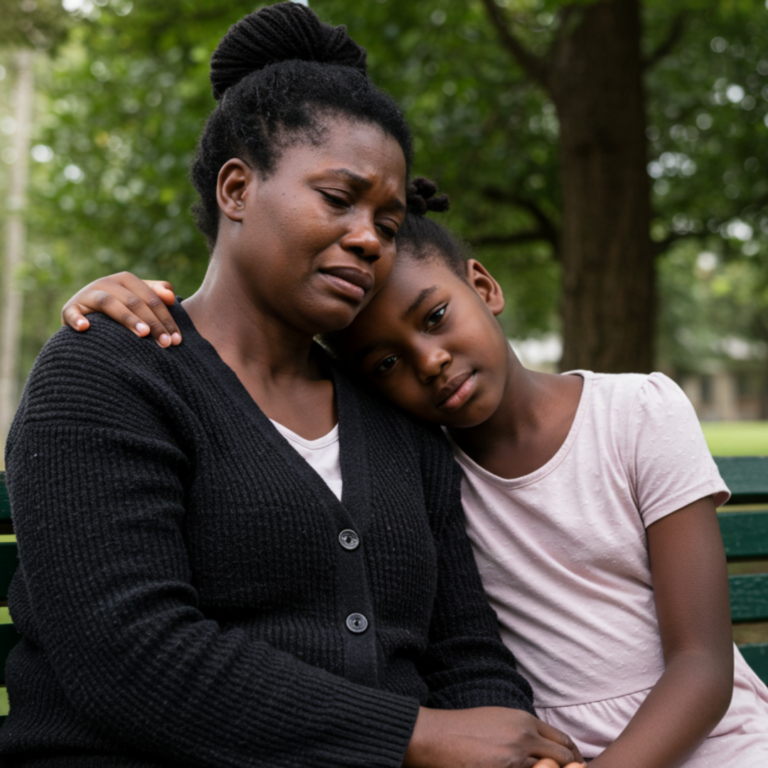Every week, Zikoko will share the hustle stories of Nigerians making it big in and out of the country. With each story, we’ll ask one crucial question in several ways: “How you do am?”
Interview by: Oghenetega Ogodo
Let’s start with the obvious question. How does one transition from banking and finance to the culinary arts?
It’s a long story. But two things shaped my path after university: an itch for cooking I couldn’t ignore and a mum who rode for me.
Let me take you back a bit: my favourite childhood moments were the ones I spent with my mum in the kitchen where we bonded over cooking. It wasn’t about preparing food for the family; it was our time to gist.
So sweet
But becoming a chef wasn’t something my parents and I considered as a career. There had to be a safer choice; banking and finance played that role.
Then Covenant University happened.
What happened there?
I didn’t get into the school the first time I applied in 2014, so I spent most of the gap year in the kitchen. I went to the university in 2015, with a lot of ginger for cooking.
But the school didn’t allow students to cook in the hostel. The only thing they allowed was kettles.
LMAO
At first, I couldn’t make anything more complex than custard or oats. Then, I started making noodles with my kettle and liked the results.
Sometimes, I’d make noodles and rice for other people. It didn’t take long before I started charging people to cook for them. Nothing tells you you’re doing something right more than people knocking at your door at 2 a.m. to ask if you could cook for them.
2 a.m.? How much were you charging?
Between ₦200 and ₦500. I was making enough that I didn’t need to dip into my allowance to take care of myself. My friends were amazing and sent people my way, so by the end of my first year, I already had a community of people who liked my cooking, but something else gave me the ultimate ginger.
Tell me about that
The school offered a general course called Entrepreneurship for Development Studies. Basically, it was a self-development course to prepare us for life after school. The messaging was something like “Go for what you want and like.”
I wasn’t entirely sure how I felt about my banking and finance degree, but I knew how cooking made me feel. The thought of making a career out of it felt right, which was validated when I did some research and found chefs in the country who were doing really great.
Must be nice to have your life figured out in uni
The key thing was that my parents supported me. My mum, especially, was my number one fan. However, she pushed that I got my degree first You know, just to have something to fall back on if a chef career didn’t work out.
Talk about hedging your bets
In my second year, I started looking at a list of possible culinary schools I could attend. I was particular about attention to detail and the fine dining scene. One school consistently came out top of my list — Red Dish Chronicles. I reached out to the school’s students, and they all had great things to say. That’s how I knew it was the one for me.
I graduated from Covenant University in 2019 and was mobilised for NYSC. Immediately I returned from camp, I enrolled at the culinary school for a six-month diploma in cuisine.
What did you need to get into the culinary school?
The requirements were a secondary school certificate and an understanding of the English language. They don’t even care if you have zero knowledge of food. As long as you have an interest, you have a place in most culinary schools.
Fascinating. What was the hardest part about this learning phase?
I didn’t find anything particularly difficult. I like to think it’s because I watched a lot of MasterChef and other cooking shows over the years that I felt at home at the school. I was just having fun, and it reflected in my grades. I did well enough that the school got me an internship at Eden Life.
Oh yeah?
The school gets an internship for students who passed above a certain grade — I think it was 75%.
Cool stuff. What did you do at Eden?
I was a commis chef
Can you paint me a picture of what the kitchen might look like to a chef just starting out?
There’s no one answer to this, but it’s fast-paced and can be chaotic. But one of the first things you learn is speed and accuracy; these are the two most important things you need to navigate the kitchen. Once you have the two on lock, the rest falls in place.
After four months at Eden, I started feeling like I might have outgrown the role.
Why do you think this happened?
The scale of the work I did. I think working at startups stretches your capacity. But I should add that the head chef was versatile and was happy to pass down their knowledge.
Anyway, I was ready for the next thing.
Did you know what that was?
Upskilling. So I went back to culinary school for another six–month diploma in patisserie. This single move got me my next job as a pastry sous-chef at a pastry shop, and I didn’t spend more than three months there before I got my next job.
Where?
The House. This was November 2021. I was hired as a sous chef at the restaurant.
Sounds like it was a big deal
In a way, it was. I’d moved from being a junior member of the kitchen to middle management in less than two years.
What did you do to make this happen?
I didn’t have to do much. I love that I do — I think that’s the basic explanation. I believe that passion is a fuel that keeps you moving. That said, I’ve also been lucky and backed by God and the people close to me.
What’s the scope of your work at The House?
I cooked, managed, trained and supervised the kitchen staff and stations. But fundamentally, it was my job to make sure everyone was doing their job according to the schedule. I was also always in contact with the procurement department to ensure they got us the right supplies.
What do you think everyone needs to know about the role?
You probably won’t learn the soft skills you need to do the job in culinary school; that bit is on you. But I imagine that emotional intelligence, people skills and good communication are the most important.
But I’ve grown so much in the past three years that I’ve started dabbling into private events and working my own gigs.
How did you make it happen?
It started with me volunteering to assist my culinary school instructors when they went out for their private events. I worked these jobs for free. But the good thing about it is it helped build confidence. I also leveraged my personal network when I was starting out, and the list is growing. I’ve earned more than my salary from one gig. But I like the structure a full-time role gives me, so I’ll stick to that for a little longer.
What’s your least favourite thing about working in the kitchen?
The work-life balance may take a hit because the kitchen is physically and mentally demanding. I left my job at the restaurant for this.
Oh, You did?
I left in September 2022 and took up a job as a chef instructor at Crumbles Chef Academy, a culinary school. The hours here are more flexible, so it works great for me. It’s exactly what I need at this time.
What do you imagine is next then?
My plan has always been to go to a prestigious culinary school abroad. But I figured I should start with one in Nigeria and work here for a while to get some experience. So I’ll explore foreign training in the next few years. The goal is to keep optimising for growth.
Hustleprint stories drop every two weeks on Tuesdays at 12 p.m. WAT, and Hustleprint guides will drop in the interim weeks.
So you can follow each drop, Hustleprint will be published in our money newsletter.




